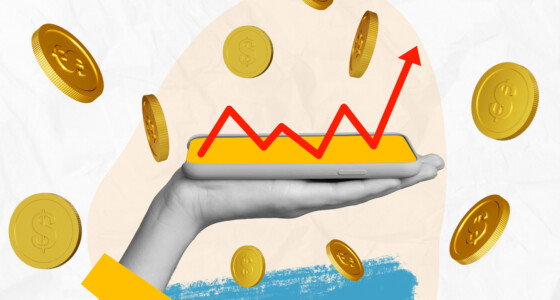

Because cryptocurrencies have been making the headlines over the last several years, everyone knows that they can be lucrative. But what many people don’t know is that they don’t have to buy and hold Bitcoins for years to increase capital. You can be a successful Bitcoin trader, even if you didn’t buy BTC back in 2008.
There are trading strategies designed to bring income in relatively short periods. Whether or not it will happen depends largely on the market environment and your actions.
If you’re ready to learn new strategies for trading cryptocurrency, continue reading.
What is a Crypto trading strategy?
A crypto trading strategy is a plan to achieve returns by going long or short in the cryptocurrency market. At their core, crypto trading strategies are the same as strategies for other speculative financial assets. Most of them even have the same name and instructions, just slightly adapted for higher volatility.
Don’t confuse a trading strategy and trading styles. A style refers to an overall approach — preferences that depend on your personality, risk tolerance, available capital, and time commitment. A strategy describes a specific methodology.
Fundamental analysis vs. Technical analysis
Fundamental and technical analysis are the two main ways to assess cryptocurrencies and their projected value in the future.
Fundamental analysis refers to studying the intrinsic value of a cryptocurrency. It considers the factors that determine how much buying interest there is on the market (demand) and how much is available to sell (supply). It considers utility, adoption, market sentiment, rival coins, the broader market, etc.
Technical analysis uses charts and past performance to determine patterns and forecast trends. This approach is more concerned with price movement and volume of transactions rather than what a cryptocurrency can offer to holders.
Many strategies combine both analyses. Although, those who trade on very short timeframes mostly use technical indicators.
Most popular trading strategies

Everyone is looking for a perfect cryptocurrency trading strategy for beginners. But as you can guess, if there was a one-size-fits-all strategy that always works, everyone would be successful.
As for widely used strategies that were tried and tested in different markets, there are a few worth discussing.
- Scalping
Scalpers make a huge number of trades to avoid volatility and unpredictability. Instead of waiting for significant market movements, they capitalize on small gains per trade but with high frequency.
- Following the trend
As the name suggests, the strategy involves going in the same direction as the trend. When the market is in an uptrend, you open long positions. If the market is falling, you go short.
- Reverse trading
This one aims to take advantage of trend reversals. If a token has been rallying for months, and a trader spots a signal of a sell-off (loss in volume, lower highs), they open a trade in the opposite direction of a current trend.
- Momentum trading
The strategy is similar to trends trading — buying high on uptrends and selling low on downtrends. But it mostly relies on aspects of fundamental analysis rather than signals from indicators.
- Buying the dips & holding
When the market price drops, a trader buys the coins at a low price; when the value goes up, they sell them at a profit. Some might call it investing, just for a shorter timeframe.
- Fade trading
This means taking in the opposite position after a price movement with strong momentum. The idea is that assets tend to lose some of their value after a breakout.
- Range trading
The last strategy involves trading in price channels — buying crypto at the support levels and selling at resistance levels.

How to build a perfect strategy specifically for you
Here are six rules to keep in mind when using any strategy:
- Have a balanced portfolio: Don’t throw all your funds into one cryptocurrency. Have a healthy mix of a few leading coins as well as lesser-known, smaller-cap, up-and-coming projects.
- Pick different types of cryptocurrencies” To create a balance of risk and return, pick cryptocurrencies that don’t have a strong correlation. For example, Chainlink and Bitcoin Gold have a negative correlation with Bitcoin, Ethereum, and Ripple.
- Avoid hype coins: Even though Dogecoin paved the path for meme coins and positioned them as promising investments, most hype coins tank.
- Prioritize liquidity: Stay away from coins that can’t be easily converted to fiat, at least in the beginning.
- Take your gains often: Lock your gains, either manually or with a Take Profit order. If you let your position sit, you can wake up to a negative chart (because of market volatility).
- Keep it as simple as possible: Strategies should not be overwhelming, so eliminate the clutter.
Common mistakes Crypto beginners make
Here is what may cause your strategy to fail:
- Excessive use of margin
- Believing everything on the Internet
- Buying assets based on FOMO
- Trading based on pump-and-dump calls
- Chasing losses, also known as revenge trading
- Relying too heavily on automated trading (or copy trading)
- Thinking crypto trading is easy money
- Constantly looking for the “next Bitcoin” and going all-in
Hopefully, this article will be helpful for your next strategizing session!
Disclaimer: No strategy can guarantee a 100% correct outcome of the trade.








